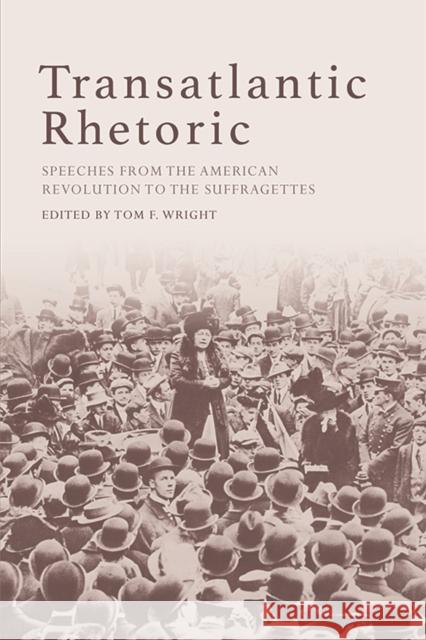Transatlantic Rhetoric: Speeches from the American Revolution to the Suffragettes » książka
topmenu
Transatlantic Rhetoric: Speeches from the American Revolution to the Suffragettes
ISBN-13: 9781474426268 / Angielski / Miękka / 2020 / 312 str.
Transatlantic Rhetoric: Speeches from the American Revolution to the Suffragettes
ISBN-13: 9781474426268 / Angielski / Miękka / 2020 / 312 str.
cena 87,93
(netto: 83,74 VAT: 5%)
Najniższa cena z 30 dni: 75,51
(netto: 83,74 VAT: 5%)
Najniższa cena z 30 dni: 75,51
Termin realizacji zamówienia:
ok. 22 dni roboczych.
ok. 22 dni roboczych.
Darmowa dostawa!
Kategorie:
Kategorie BISAC:
Wydawca:
Edinburgh University Press
Język:
Angielski
ISBN-13:
9781474426268
Rok wydania:
2020
Ilość stron:
312
Waga:
0.63 kg
Wymiary:
24.13 x 16.76 x 1.52
Oprawa:
Miękka
Wolumenów:
01
Dodatkowe informacje:
Wydanie ilustrowane











